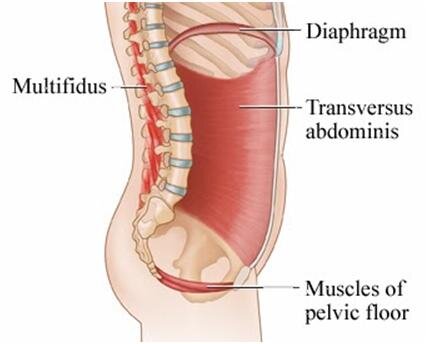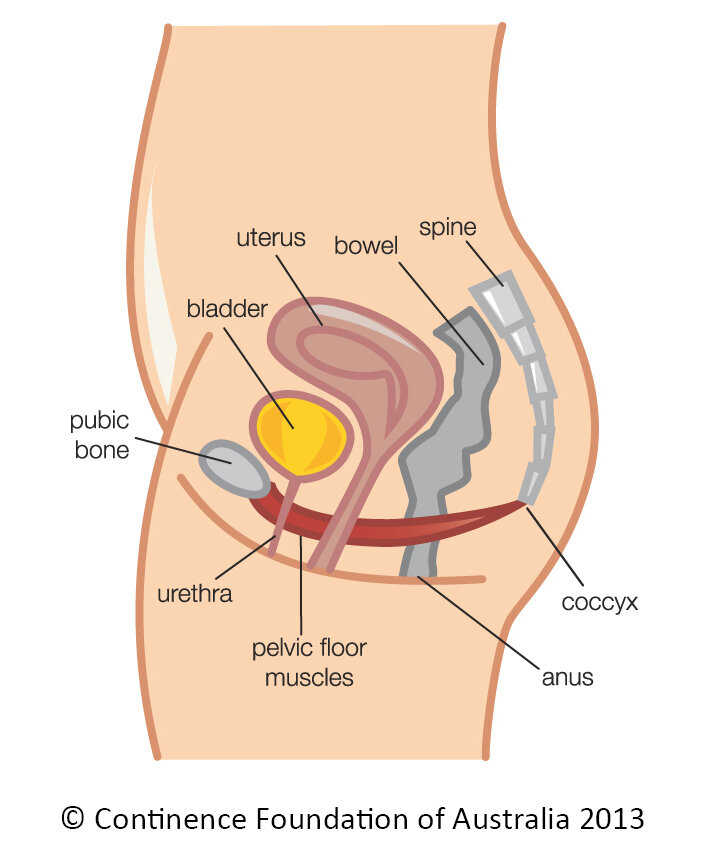
women’s Pelvic health physiotherapy
Helping you find confidence
and continence.
If you are having issues with incontinence or pelvic pain, you are not alone!!
Urinary incontinence and Pelvic Pain are significant issues which are not discussed nearly enough.
With an estimated 1 in 3 women experiencing some form of bladder dysfunction and 15-20% of women experiencing chronic pelvic pain in their lifetime, it is time for us to start talking about it.
And time to start resolving it!
At Resolution Physiotherapy & IMS Clinic in Barrie,
our Pelvic Health Physiotherapists have specialized, post-graduate training in the assessment and treatment of pelvic health disorders and can help restore your pelvic function and help you find confidence and continence!
“An estimated 32 million adults have issues with incontinence. Up to 32% of women will experience some sort of incontinence issue in their lifetime. ”
— Harvard Health Publishing
“The staff at resolution were friendly and helpful right from my initial phone call. I saw Courtney and she made me comfortable and worked with me over several visits, where I saw vast improvements with issues I thought were the new normal being post partum. I highly recommend going to see Courtney for every post partum woman!”
“I have loved working with Beata S. since the beginning of the year. She has guided me through my pregnancy with so much positivity and knowledge! She took the time to understand my goals (keep running safely for as long as possible!) and gave me exercises and tips to keep my core and pelvic floor safe and healthy. She also got my husband and me to practice different labouring positions, which will be so useful when giving birth. Beata never makes me feel rushed during appointments and always takes time to ask me many questions, which has really made me valued. I am planning on continuing working with her after giving birth as I completely trust her judgment and advice. Thank you, Beata and Resolution Physiotherapy!”
“Marianna was so friendly and made sure to explain everything about my initial exam since I had never had an experience before with pelvic floor therapy! She made the whole process easy and really knows her stuff.”
The pelvic floor is part of your core.
Your pelvic floor muscles are a group of muscles which make up the bottom portion of your core muscle system.
Your core muscle system is like a cube which consists of your deep abdominal muscles on the front, your deep low back muscles on the back, your diaphragm at the top and your pelvic floor muscles on the bottom.
When all of these muscles are working well together, they will protect your low back, stabilize your pelvis, and ensure normal bowel and bladder function.
The pelvic floor is like a trampoline.
Think of the pelvic floor muscles like a trampoline.
The pelvic floor is made up of a number of muscles which run from your pubic bone on the front to your coccyx (tail-bone) at the back. Piercing through the middle of this trampoline are very important end organs including your urethra, vagina and rectum. Above this trampoline are your bladder, bowel and uterus.
The job of the pelvic floor is to support and hold these organs in the correct place.
When you cough, sneeze, jump, or run, there is a downward force on your bladder, bowel and uterus which pushes down on the pelvic floor similar to when a person jumps on a trampoline.
Much like a trampoline, the pelvic floor reduces the downward force and helps organs return to their intended location. The pelvic floor has an added function of helping to close your urethra and bowel, ensuring that you have no unwanted leakage and, on the flip side, relaxing when it needs to to ensure you can go to the bathroom unhindered.
The pelvic floor also helps strengthen your vaginal wall which is linked with sexual satisfaction.
Who is at risk for pelvic floor dysfunction?
Although incontinence is most common in women who have had babies, it can happen to women or men of any age.
Risk factors commonly associated with pelvic floor dysfunction include:
pregnancy (both pre-natal and post-natal women)
menopause
obesity
urinary tract infections
constipation
surgery such as hysterectomy (removal of all or part of the uterus and/or ovaries)
reduced mobility preventing you from getting to or using the toilet
neurological and musculoskeletal conditions such as multiple sclerosis and arthritis
health conditions such as diabetes, stroke, heart conditions, respiratory conditions, and prostate problems, and
some medications
What happens when the pelvic floor is not functioning properly?
Pelvic floor dysfunction can lead to a variety of disorders including:
Stress Incontinence
Stress incontinence is the most common urinary incontinence issue. Coughing, sneezing, laughing, walking, running, or most extremely jumping on a trampoline, all create a downward force on your bladder, uterus and bowel. If your pelvic muscles are weak, they are unable to prevent this downward motion and they do not hold your urethra or bowel closed sufficiently, resulting in leakage.
Urge Incontinence
Do you ever abruptly feel that you must pee so badly that you might pee your pants, even though you don’t think your bladder should be full yet? If so, you may have urge incontinence, also referred to as overactive bladder. Normally, your bladder remains relaxed until it is full and, when you are comfortably sitting on a toilet, your bladder then contracts to push urine out so you can go to the bathroom. With urge incontinence, your bladder contracts too early, kind of like a muscle would spasm, and this contraction pushes urine outward, requiring a very strong contraction of your pelvic floor muscles to stop any leakage.
Pelvic Pain
Pelvic pain is a complicated problem which can significantly impact sexual satisfaction and quality of life. Overuse and chronic tension in your pelvic floor muscles or adhesion in the muscles or connective tissue in your pelvic region can result in pelvic pain.
Prolapse
Your bladder, uterus or bowel are held up by ligaments, fascia and your pelvic floor muscles. If the tissue becomes stretched and your pelvic floor muscles are weakened, your pelvic organs may bulge or sag into your vagina. If you have prolapse you may feel a heaviness or sense that something is bulging into or protruding out of your vagina.
Rectus Diastasis
Rectus Diastasis is a separation in the rectus abdominis, or your ‘six-pack’ muscles, which occurs when belly expansion increases intra-abdominal pressure. This separation weakens the abdominal wall and reduces the effectiveness of your pelvic floor contraction. This can lead to incontinence, prolapse and low back pain.
How can our Physiotherapists help with Pelvic Pain or Incontinence?
Our Pelvic Health Physiotherapists have specialized, post-graduate training in the assessment and treatment of pelvic floor disorders.
Using external and internal techniques, our Physiotherapists will assess:
lifestyle, dietary, and toileting habits which may impact continence
tension, strength and endurance of your pelvic floor muscles
adhesion or trigger points in pelvic floor musculature
for any signs of uterine, bladder, or rectal prolapse
rectus diastasis assessment
evaluate low back and sacroiliac function, joint mobility, and myofascial tone/adhesion
strength of core including transversus abdominus, multifidus and diaphragm muscles
Pelvic Health treatment from our Pelvic Trained Physiotherapists may include:
education and re-training of pelvic floor muscles
pre and post-natal pelvic floor, postural and core strengthening education
ultrasound imaging as biofeedback to normalize tone and strength of pelvic floor muscles
Gunn IMS to reduce pelvic neuropathic dysfunction and pain
rectus diastasis rehabilitation
pelvic floor retraining
fitting of Pessaries to minimize or improve Pelvic Organ Prolapse or Stress Urinary Incontinence
education regarding usage of affordable home biofeedback devices that promote independence in your strengthening program
pelvic floor myofascial release techniques
self-myofascial release techniques
postural re-education with the goal of maximizing pelvic floor function
strengthening of all core musculature
treatment of any identified low back or sacroiliac dysfunction
education regarding dietary, lifestyle and toileting habits which will minimize risk and maximize function of your pelvic floor
collaboration with extended healthcare team including urologists, gynecologists and family physicians
For more information or to book an appointment with one of our highly qualified Pelvic Health Physiotherapists, contact us today.
pelvic health physiotherapy barrie, women’s health physiotherapy barrie, pelvic health physiotherapy barrie, women’s health physiotherapy barrie, incontinence barrie, prolapse barrie, pelvic pain barrie
Affiliations
Emma Needleman is a Lactation Consultant (IBCLC) and a certified perinatal mental health professional (PMH-C).
Emma is a Lactation Consultant (IBCLC) and a certified perinatal mental health professional (PMH-C) with nearly two decades of experience supporting pregnant and postpartum people, and their families. She has a Bachelor of Health Sciences in Midwifery from Ryerson University and a Bachelor of Arts in Gender Studies from St. Francis Xavier University. She became an IBCLC in 2017 following her own experiences with nursing challenges.
Emma’s passion is supporting parents in making informed decisions about themselves and their families, with kindness, patience, and without judgement. She helps parents navigate the waters of new parenthood and the early years by fostering connection and secure attachment through up to date, evidence-based education and support.
Emma is a mama to two busy boys, and a lover of trail running, Canadian fiction, and coffee.
FB & IG @emmaneedlemanparenting
Michelle Farrow is a Registered Psychotherapist with the College of Registered Psychotherapists of Ontario.
Michelle provides a wide range of services to treat the challenges that life presents which may impact your mental health. Michelle offers individual counselling for adults with concerns that may include trauma, perinatal, postpartum, and infertility, depression and anxiety. Through a trauma informed lens, Michelle can help you regain some control back over your feelings, establish safety, reprocess the traumatic event(s), and develop coping skills for future resiliency. Reach out for a no cost 15-minute meet and greet.









